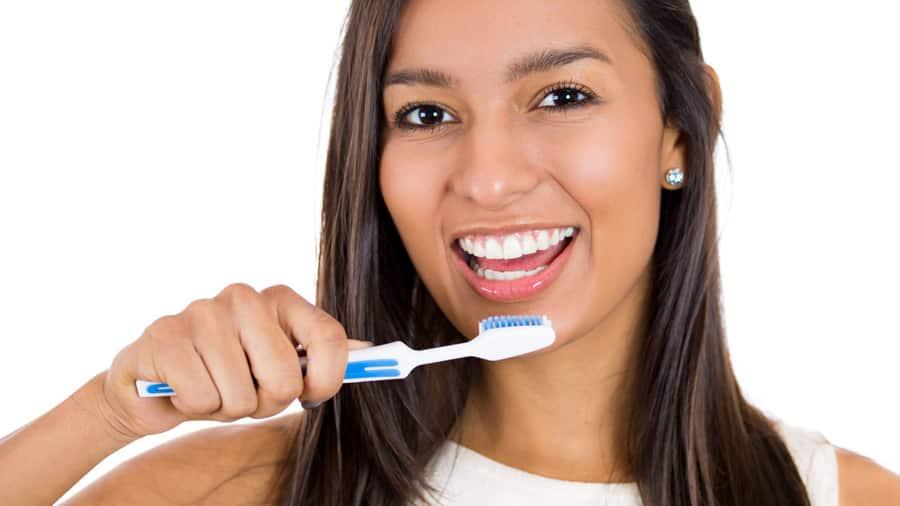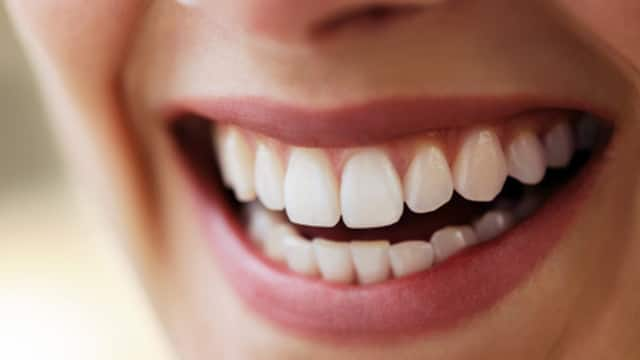How To Choose The Best Whitening Toothpaste?
When selecting the best teeth whitening toothpaste to whiten your teeth effectively, there are a few factors that you may want to consider:
1. Active Ingredients
The most significant difference among teeth whitening toothpastes is their active ingredient. Active ingredients refer to the ingredients in the toothpaste that do the job of effective whitening. There can be different types of active ingredients, or ‘whitening agents’:
- Ingredients that help remove surface-level stains on your teeth: As the term suggests, surface stains occur on the surface of your teeth. These might occur if you drink a lot of coffee, tea, or red wine. Ingredients like high-cleaning silica can help remove surface-level stains by polishing your teeth. Some toothpastes contain advanced ingredients like tetra potassium pyrophosphate that can further help with removing stains and prevent further stains from attaching to the tooth surface.
- Bleaching agents or other ingredients that can remove deeper, intrinsic stains: Some whitening toothpastes and other whitening products use bleaching chemicals, such as hydrogen peroxide, to brighten the teeth. Hydrogen peroxide is a whitening agent commonly used by dental professionals when they do whitening treatments in their clinics. But hydrogen peroxide usage is regulated in India for the safety of the users hence toothpastes above 0.01% hydrogen peroxide are not sold over the counter in India.
Colgate offers toothpastes with a patented active oxygen whitening technology that works similar to hydrogen peroxide. When this formula comes into contact with water, it releases oxygen molecules that go within the tooth enamel to lighten the deep stains within the enamel. But some of the best whitening toothpastes in India have advanced technology like oxygenated whitening that delivers a similar effect but safe to use at home.
2. Safety
One of the common side effects people complain about with some whitening products is mild tooth sensitivity. This could be either because of abrasive action or the active ingredients themselves. Chemicals like hydrogen peroxide can cause more discomfort than others - and therefore these are best used by dentists in a controlled environment.
If you experience mild tooth sensitivity, consider switching to a more gentle toothpaste formulated as a surface stain remover rather than a bleaching toothpaste. However, if you continue to experience sensitivity, it’s best to consult a dental professional.
3. Enamel Protection
Pick a good toothpaste for whitening teeth that protects enamel and helps teeth stay bright. Enamel-protection toothpastes make it harder for stains to penetrate and cause yellowness or discolouration on your teeth.
4. Cavity Prevention
For those with busy daily schedules, a whitening toothpaste that also provides other oral care benefits, such as cavity protection or enamel strengthening, may be a convenient single product choice. Many toothpastes have fluoride that can offer additional advantages like cavity protection - beyond the primary whitening function.
What Are The Benefits of Using Teeth Whitening Toothpastes?
Whitening toothpastes can offer several functional benefits that extend beyond just a brighter smile. They can play a role in oral health maintenance and can lead to improved overall dental hygiene:
Prevents Stain Buildup: Regular use of whitening toothpaste can help prevent the accumulation of stains from food and beverages, reducing the risk of plaque and tartar formation.
Cavity Prevention: Many whitening toothpastes contain fluoride and other ingredients designed to strengthen tooth enamel and protect against cavities.
Affordability and Accessibility: Compared to professional whitening treatments, whitening toothpastes are a cost-effective solution for maintaining a brighter smile, accessible for daily use.
Get a Whiter Smile With Colgate Visible White Booster Gel
Looking to achieve a brighter smile beyond what whitening toothpaste alone can offer? Consider adding Colgate Visible White Booster Gel into your daily oral care routine. This gel helps you achieve a brighter, whiter smile in just two weeks.
Colgate Visible White Booster Gel utilises advanced active oxygen technology to deeply penetrate the enamel and break down stains caused by daily habits. The easy application of this gel after brushing makes it an excellent choice for daily use. For optimal results, use it twice a day after brushing your teeth. Over the course of 14 days, you may notice a visible improvement in the brightness of your smile. Is a big occasion on its way? Opt for Colgate Visible White Booster Gel to achieve a whiter, brighter smile from the comfort of your home.
Best Toothpaste For Whitening: Our Picks
Choosing the best toothpaste for whitening is crucial for achieving a brighter smile and maintaining optimal oral hygiene.
Colgate Visible White Toothpaste
Colgate Visible White toothpaste has whitening agents - silica and pyrophosphate - that gently remove surface-level stains from your teeth. They polish the tooth surface while protecting the enamel, exfoliate stains and polish the tooth surface while protecting the tooth enamel. Its active ingredients, such as silica, start whitening your teeth in 1 week.
Colgate Visible White O2 Toothpaste
Colgate Visible White O2 toothpaste has a revolutionary formula that whitens teeth in three days. It releases millions of active oxygen bubbles, providing a warm sensation and lightening stains. The toothpaste works beyond the surface, whitening each tooth inside out to reveal the natural whiteness of the teeth. It is vegan, gluten-free, and gentle on the tooth enamel, which makes it a top pick.
Colgate Visible White Purple Serum
Alternatively, consider trying *Colgate Visible White Purple Serum, as it can provide a whitening boost through superior color correction. Its ultimate purple helps color correct yellow tones for a whiter smile*.
Choosing the best whitening toothpaste can perfect your oral health routine and unlock a radiant, brighter smile. Consulting a dentist to find the best paste for teeth whitening for your needs is recommended.
*for temporary efficacy.
*vs brushing with Colgate non whitening toothpaste alone.
Frequently Asked Questions
1. Will whitening toothpaste whiten crowns or implants?
Whitening toothpaste is not designed to whiten implants, crowns, caps, bridges, or other dental restorations.
2. Can whitening toothpaste damage enamel?
No, whitening toothpaste is usually considered safe. If you experience extreme teeth sensitivity, you can contact a dental professional to guide you in choosing the right toothpaste.
3. How much toothpaste should you use on a toothbrush?
The average adult only needs a pea-sized amount of toothpaste for sufficient cleaning, regardless of whether you are using an electric toothbrush or a regular one. It would be best to consult a dentist to know more about teeth and choose the best toothpaste to whiten teeth.
4. Does whitening toothpaste actually work?
Choosing the best whitening toothpaste can enhance your oral care routine and contribute to a brighter, healthier smile. Whitening toothpaste contains polishing agents and special chemicals that effectively scrub off stains unaided by bleaching agents and can brighten the teeth by about one shade.
5. Which Indian toothpastes are SLS free?
You may be able to find various proprietary toothpastes without sodium lauryl sulphate in India. However, the role of sodium lauryl sulphate (SLS) as a detergent or surfactant that makes toothbrushing effective is worth knowing. It is responsible for the foaming action of the toothpaste which increases the solubility of plaque and oily stains accumulated on teeth.
This article is intended to promote understanding of and knowledge about general oral health topics. It is not intended to be a substitute for professional advice, diagnosis or treatment. Always seek the advice of your dentist or other qualified healthcare provider with any questions you may have regarding a medical condition or treatment.
ORAL HEALTH QUIZ
What's behind your smile?
Take our Oral Health assessment to get the most from your oral care routine
ORAL HEALTH QUIZ
What's behind your smile?
Take our Oral Health assessment to get the most from your oral care routine













